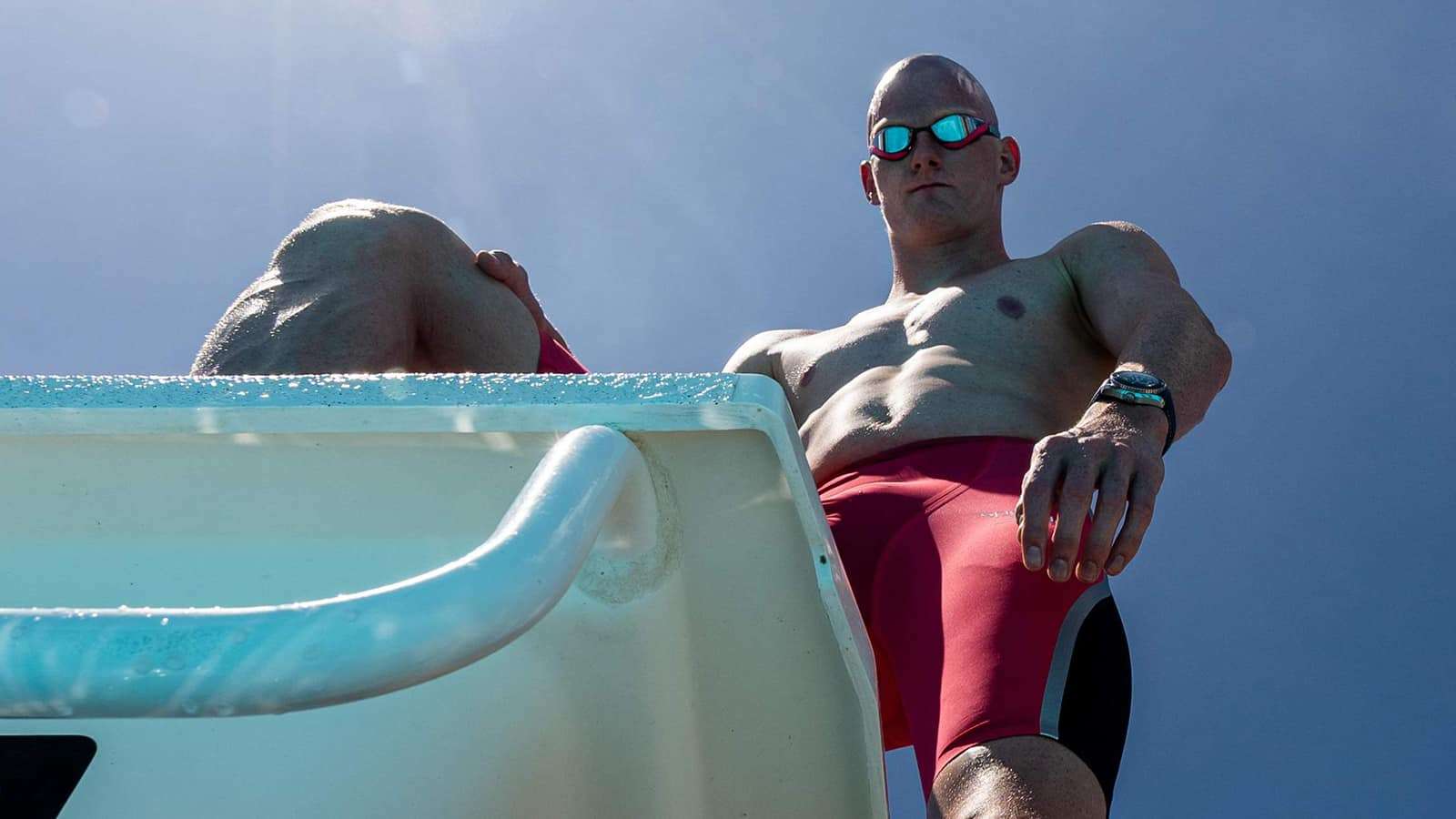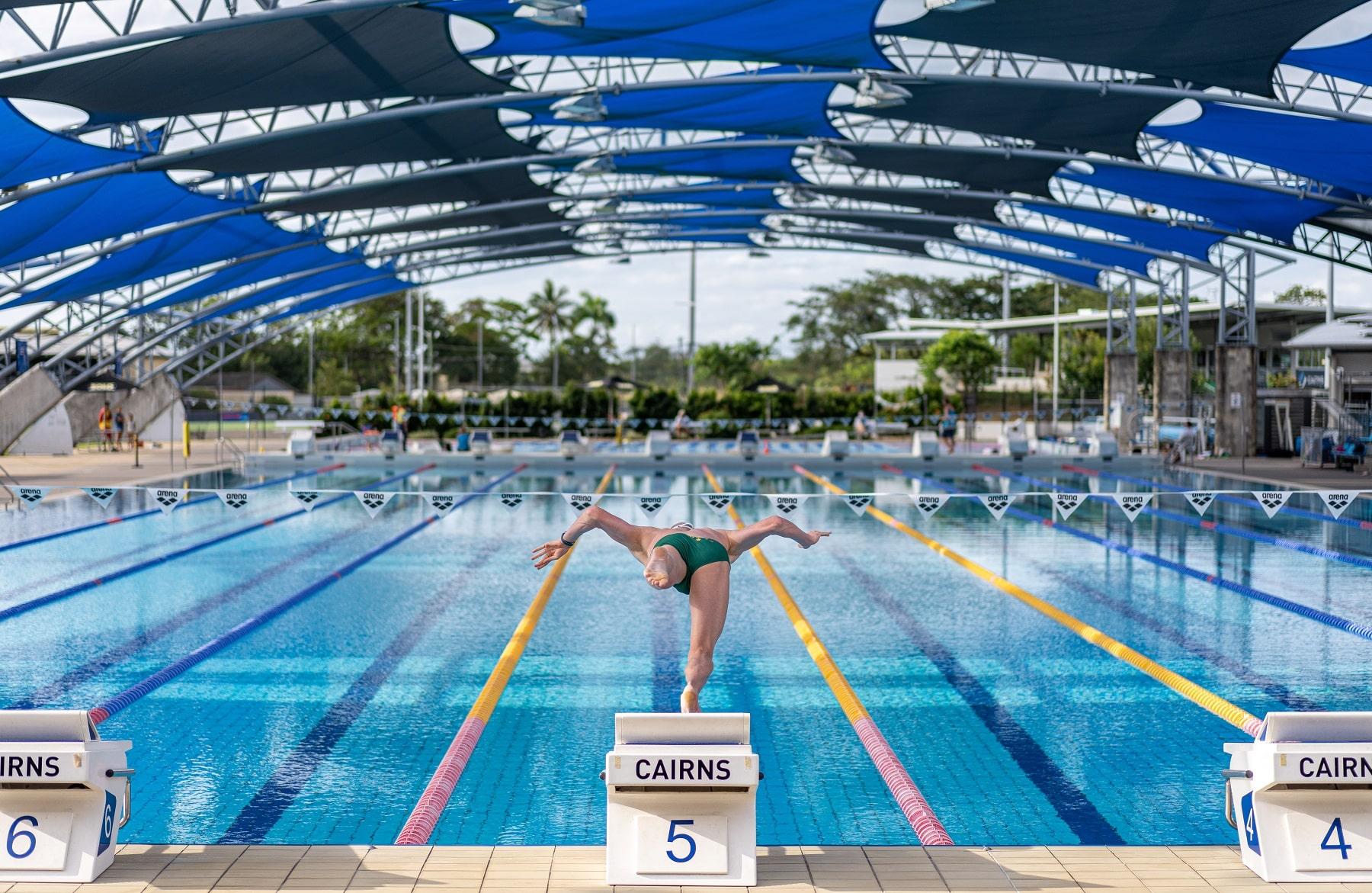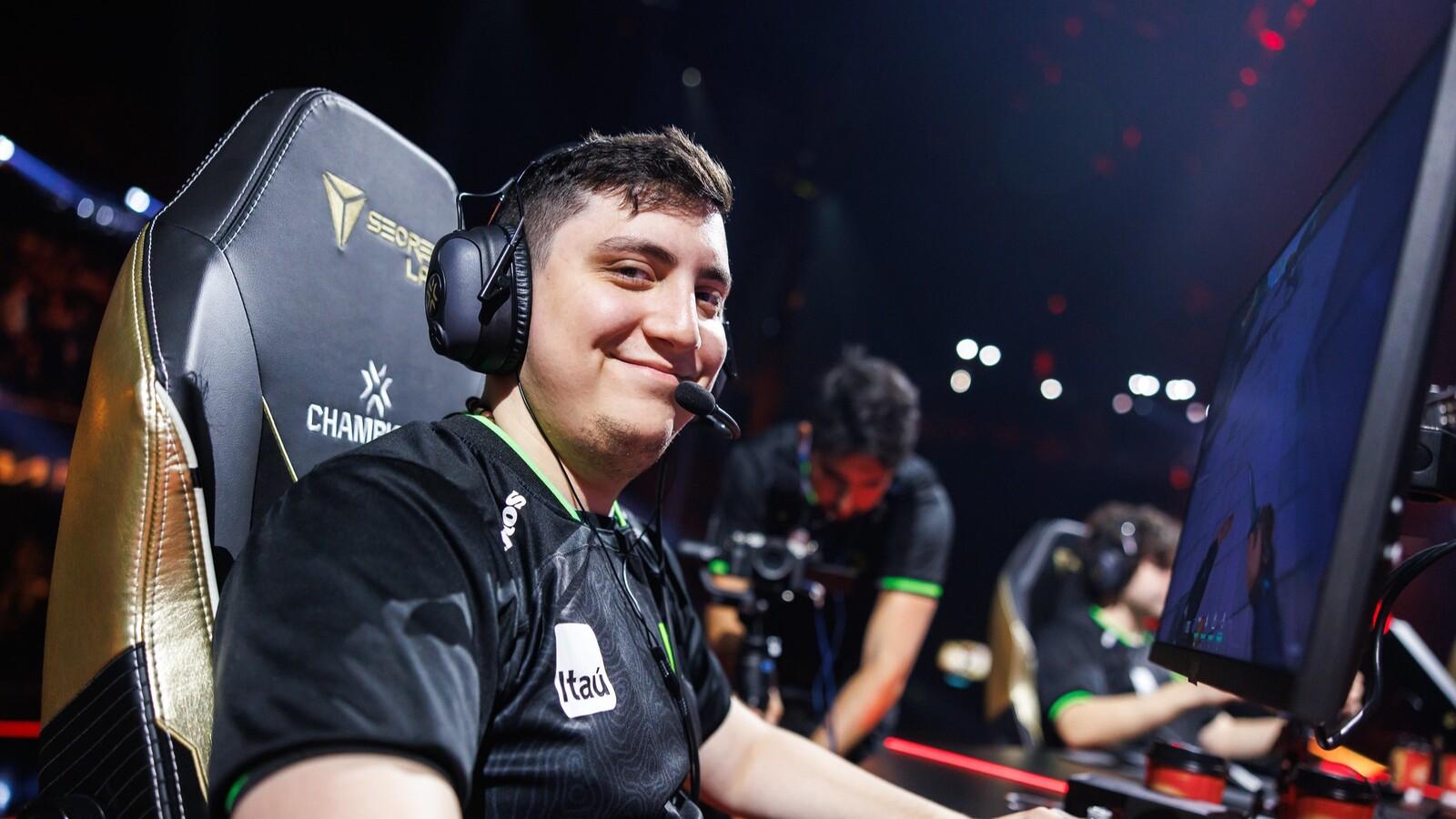From Valorant competitor to Paralympic gold medalist, Magnetbrain is bridging the gap to esports
 Instagram: Rowan Crothers / Supplied
Instagram: Rowan Crothers / SuppliedRowan ‘Magnetbrain’ Crothers made waves during the Tokyo Paralympics, winning two gold medals and a silver in the pool. The former Valorant competitor is using his new-found platform to bridge the gap between kids with disabilities and their dreams, esports or otherwise.
There’s two sides to Australian swimmer Rowan Crothers: The fish in the pool, and the esports competitor Magnetbrain. His story doesn’t start at the Tokyo Paralympics with his two gold medals, or in the Valorant server though.
It starts as an 11-year-old watching Beijing 2008.
Crothers watched the Paralympic swimmers carve up the pool in awe. Having started swimming three years earlier as part of his physiotherapy to help his cerebral palsy, it gave him something to strive towards.
“I would swim backwards more than I would swim forwards, I had no coordination, I didn’t want to do it at all, but I knew I had to for my therapy,” he told Dexerto.
“I grew up thinking ‘I can try as hard as I wanted, but I could never be successful in anything because of my disability.’ Seeing that was the spark of me thinking I could do something really good.”
Swimming gave Crothers a competitive outlet, something which allowed him to pursue his craft all the way to the top, winning Olympic gold and breaking world records in the process. But so did esports.
Now, he wants to use his plaudits in both to inspire other kids with disabilities to pursue their dreams, no matter the field.
Former #VALORANT player @magnetbrain has just won a Gold Medal at the Paralympics.
After competing at the top level in the Oceanic region, Rowan Crothers quit to start preparation for #Tokyo2020, and now he's a gold medalist 🙌 pic.twitter.com/XkyLw6AJ1I
— ValorIntel (@ValorINTEL) August 25, 2021
Rowan Crothers, the swimming sensation
Crothers was expecting to watch Tokyo 2021 at home. While a top-class swimmer in the S10 category (the highest form of mobility within Paralympic classifications), he missed out on a spot on the team during the trials.
“I remember how I reacted to that. The first thing I did was get out of the pool — I didn’t even cooldown, I didn’t even chat to my coach — and cried,” he said.
“I didn’t feel like a failure, but I still felt like I let people down. I have a massive team with so many people that worked so incredibly hard to get me to where I am, and I felt like I didn’t do them justice by missing out on the team.”
12 weeks later, he climbed on the lane rope to celebrate getting Paralympic gold, and being within a tenth of a second of breaking the 50m Freestyle world record.
It wasn’t like Crothers was a nobody in the swimming world. He was a Commonwealth Games champion, and won the prelude meet in Lewisville earlier in 2021. However, unlike his return from the United States, he’s got his hands full this time around in lockdown.
“I have been pretty much flat out for the past 24 hours, on the phone, talking to people, in meetings, media stuff — it’s all happening,” he laughed after I called him up.
“I have had three marriage proposals in my DMs now!”
The reality of what he achieved in Tokyo — two gold medals, a silver, and a world record in the 4x100m Freestyle Relay — still hasn’t even really sunk in yet.
on this day two weeks ago i fell off of a lane rope. pinch me, i think i'm still dreaming pic.twitter.com/VwbQC7fwc9
— Rowan 🧲🧠 (@magnetbrain) September 7, 2021
Crothers has never been a results-orientated person. Gold doesn’t matter to him, Silver “matches his skin tone”. His one goal heading into Tokyo was to break the 49-second barrier in the 100m Freestyle. While he missed out on doing that, he couldn’t help but smile looking back on those two weeks.
“It’s not just about winning medals and being a world record holder, just being able to represent your country is such a special thing. I’m not racing for myself, I’m racing for 24-odd million people back home.
“If I did make the team straight away without missing out on those times, I probably wouldn’t have won the medals and I wouldn’t have picked up those things I could have improved on.
“It’s all just a massive blur, and I do think I’m going to wake up at home in Brisbane and get ready for training like it’s any other day. It still just feels like a dream.”
Magnetbrain, the Valorant star
Crothers’ track record in the pool is well-documented. However, his esports career is more of a silent side hustle to those outside the Oceanic echo chamber.
If 2008 was the birth of Crothers the swimmer, then 2014 was the birth of Magnetbrain, the star gamer.
He picked up Team Fortress 2 first, before moving on to Counter-Strike in 2015 because “the comp scene was pretty dead.” From there, Crothers put as much time into getting better in the server as he did in the pool — all while juggling school.
He was inspired by the likes of Ninjas in Pyjamas — the “OG version” with f0rest, GeT_RiGhT, Fifflaren, Xizt, and friberg. “It was so fun watching them. They’d win all these tournaments, they’d get up on stage and have a good time doing it,” he said.
While he competed in a couple of local LANs in Australia, he was ultimately pushed out of the toxic CS:GO community in 2019.
throwback pic.twitter.com/Whiqvr48KX
— Rowan 🧲🧠 (@magnetbrain) June 5, 2021
Then, Valorant came along and changed everything. He picked up Riot’s tactical FPS from day one, during lockdown no less. With Tokyo 2020 (back then) being up in the air, Magnetbrain needed that competitive itch scratched.
“It was just a casual and fun thing, but then Valorant came out, and things clicked really well. I was looking for a team, Crunchy on Exo [now part of Soniqs in NA] hooked me up with the boys on Pants Down, and the rest is history.”
Pants Down tore up the Australian scene in the early days of Valorant. While they were never considered the best team, they flirted with the Top 4. Crothers was a star on the Sova before moving onto the Jett to fill some of Pants Down’s gaps.
When I first spoke to Magnetbrain in October 2020, he wanted Pants Down to be the best.
He brought some of the habits he learned from swimming over to try and boost his team, and even hired a sports psychologist — a rarity in Oceania, but a common trend globally.
“Our long-term goal as a team is to be the best team in the region and one of the best teams in the world, and to do that, we try to train like one of the best teams in the world,” he said.
“It carries over with my swimming too. I’ve worked with a range of sports psychologists throughout my career and I knew they would have such a big impact in gaming, but I never thought it would have been as significant in a game like Valorant, but it makes sense, because it’s all about that decision making and teamwork.”
quick lil threepiece@TeamPantsDown pic.twitter.com/YKbG1KjUUu
— Rowan 🧲🧠 (@magnetbrain) August 17, 2020
While there were glimpses of promise, and the results were slowly coming in — a Top 6 finish in the Order Oceanic Open Ignition Series event, and a handful of Top 4 placements in other Oceanic regional events — Tokyo came knocking for Magnetbrain.
He needed to start putting time into his swimming preparations. He sacrificed so much to try and make Valorant work, but he had to commit to one craft over another.
In his words, it was a “heartbreaking question to answer.” Now though, he’s confident he now made the right choice.
“I wish I could, but the thing with esports is that it’s a really big commitment. Having been close to the elite level, and this is to esports’ credit entirely, it takes so much time and discipline to become a professional player in any game, and the reality is I can’t balance that with swimming.
“That’s amazing because it shows that esports isn’t just playing video games, esports is a legitimate, professional competitive endeavor, and you have to be able to put everything that you can into the game if you want to take it to pro.
“We want sport to be professional and serious because that’s when it’s most exciting. We love those nail-biting moments and we love those storylines when two teams have players that have been practicing for tens of thousands of hours and it’s their entire life’s mission to be good.
“The fact those storylines exist is because it takes so much time, dedication, effort to be good. I can’t put in that effort now because swimming is my baby, but I love that it takes that much time to be good.”
 Supplied
Supplied Making esports a safe space for children with disabilities
Magnetbrain has been on a media whirlwind since stepping back on home soil. He is fielding phone calls from everyone, including politicians and even the Governor-General, one of the highest offices in Australia.
Being in the spotlights for his achievements in the pool is one thing, but he wants to use his platform for the greater good.
“Not every single person is going to be insanely good and reach that very top level, but sport’s not about that. You have the elite level, and a lot of what that elite level does is inspire kids to get out into their community and do that sport,” he explained.
“Esports has the same potential. It’s not just about these young kids reaching the professional stage, it’s about giving these kids an outlet and getting away from all the bullying in their lives, giving them new friends, making them feel part of this awesome community.”
It’s not just the media circus. Hundreds of people have reached out to Crothers directly, saying someone they know has been inspired by what he achieved in the pool. Each and every message has touched him.
GUYS IM ON THE THING 😵 pic.twitter.com/z8MKWBnMnC
— Rowan 🧲🧠 (@magnetbrain) September 5, 2021
“The one message I had that stood out to me the most… there was a brother of a woman, this guy had cerebral palsy and he has an intellectual impairment.
“He doesn’t have too much to live for, but he’s such a sweet guy, and for this woman to reach out to me and say this guy, who is her best friend in the whole world, has now started to ride a bike and get out there and do stuff they’re normally too afraid to do because they’ve been inspired.
“I don’t cry much, I don’t cry easily, but I cried seeing that. It was that moment where I realized that the things that I do, they have an impact and they do make a difference on others.”
The competitiveness of esports drew in Crothers. He could be an equal. “There’s no Paralympic esports competition,” he says.
That, ultimately, puts esports — and gaming — in a unique position to unite people better than any other craft, and he’s pushing for that.
“It doesn’t matter if you can’t run or jump, or if you have bad coordination, or if you have brittle bones and you can’t do intense sports, there’s still a competitive avenue so if you want to do something and prove your worth on the field, you can do that on an online field.
“One thing that has been a very appealing factor towards esports for me is I can be as good as be in the pool, but I’m always going to be limited to the Paralympics. In esports, there’s no differentiation. It’s just ‘am I as good as everyone else who does it?’
“Being someone who is addicted to the competition more than winning, that has really appealed to me because I can prove myself on an even greater scale.”
Real talk. Esports has the potential to be absolutely massive for young people and kids with disabilities, the ability to compete
-with their peers
-on a fair playing field
-non-contact
-in a variety of engaging sports
-both team and individualJust incredible
— Rowan 🧲🧠 (@magnetbrain) September 5, 2021
He’s also had a crazy clash between his esports world and his swimming world. If Rowan won a medal, everyone on Twitter would reply “vouch”. He’s more than just a swimmer or a gamer now, but somehow a bridging point between both worlds.
“We had an afterparty on the night of the closing ceremony and everyone was letting their hair down. I had about 4 or 5 different people come up to me and say ‘hey, you’re that gamer dude’ or ‘hey, you do esports, don’t you?’. It’s interesting to see the worlds collide.
“Esports has been such a massive passion of mine for many years now, and to have a bit of recognition for being that gamer instead of people saying ‘you play video games? That’s weird,’ it’s now like ‘oh wow, you’re a competitive gamer, that’s awesome.’”
Now, he’s going to fuse the two worlds. Magnetbrain is keen to kick off his Twitch streaming career — alongside keeping up his swimming routine — but this time with the emphasis of inspiring kids to do what they love, esports or not.
“The thing with Twitch streaming is that it’s accessible and it lets you directly interact with the viewers. In the media, you’re still talking to people but you’re almost talking at people. You’re not sitting there directly communicating with someone that can then respond back to you.
“Instead of talking and hoping someone listens, you’re talking to people who are listening and are paying attention.
“If I can do that with some kid who thinks ‘wow Rowan is this big athlete guy, he’s not going to care about me,’ and then Rowan tells that kid ‘hey, go jump in the pool or go download CS and Valorant and have fun,’ that means so much to those kids.
“That’s why Twitch streaming is going to be so awesome. It’s got this massive potential.
He might be putting his esports pro aspirations to the side, but he wants others to live out their dreams like he did.
“No matter if it’s esports, swimming, whatever field, if it’s your passion, commit yourself and chase it.”



